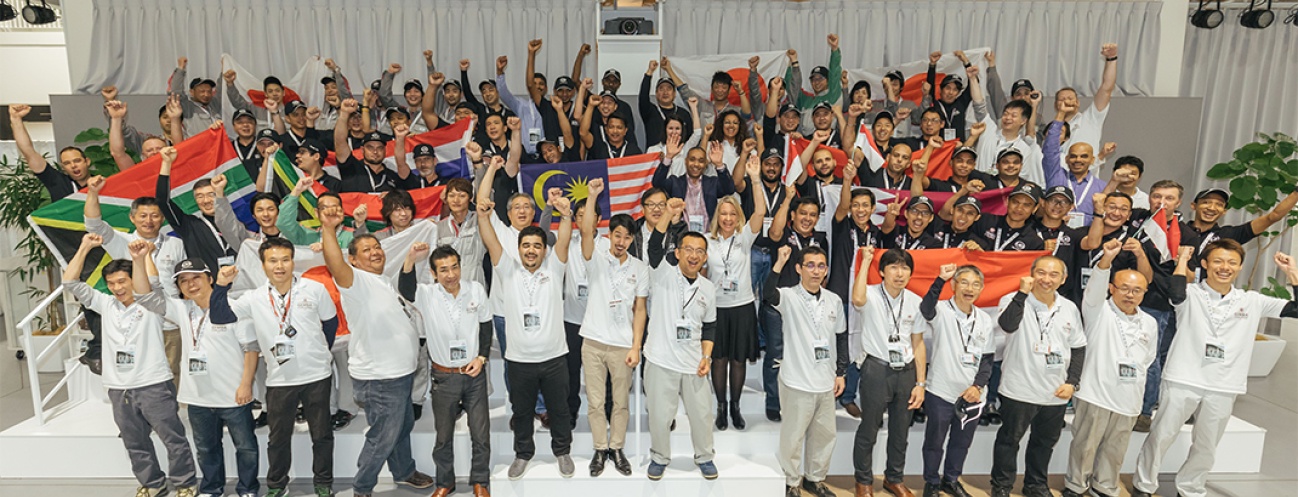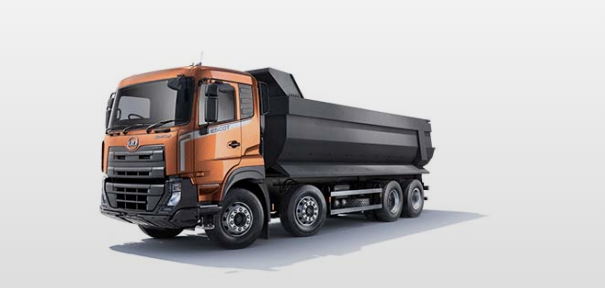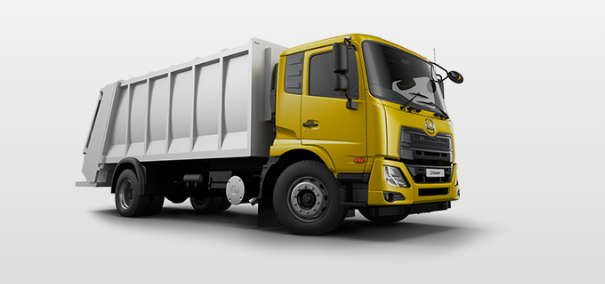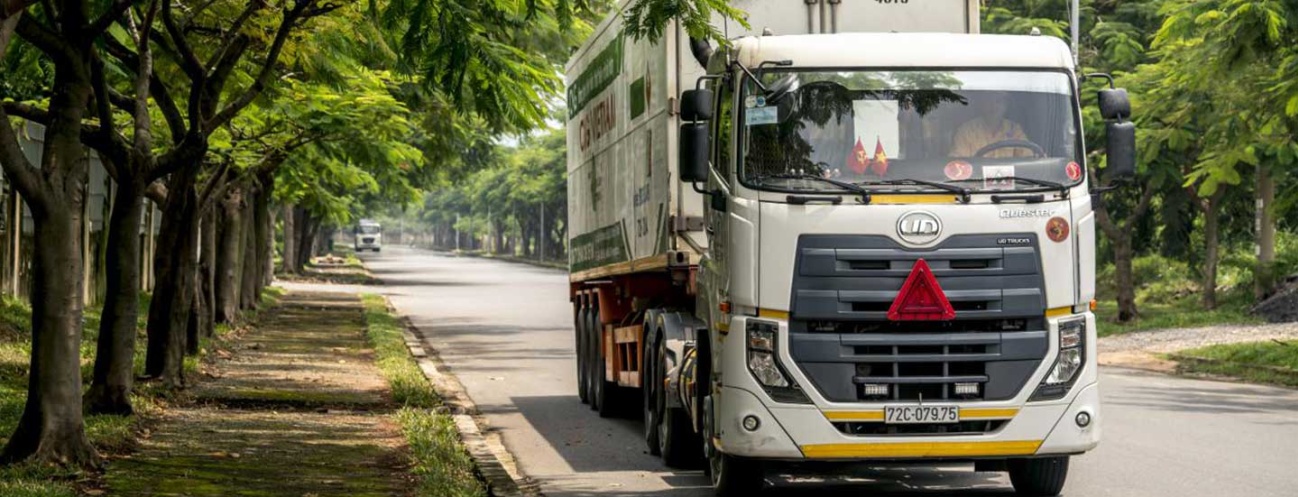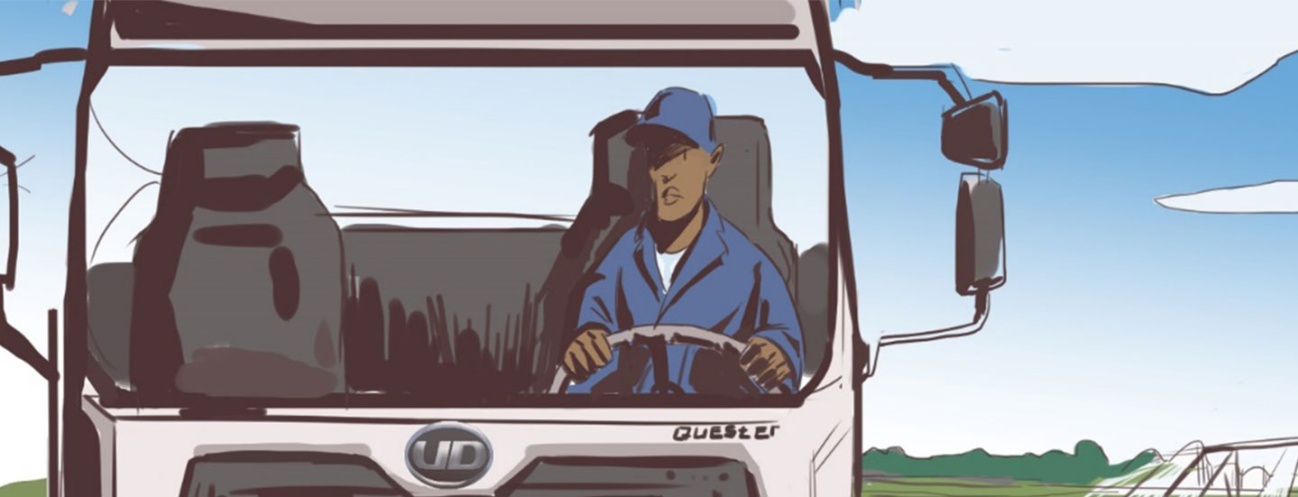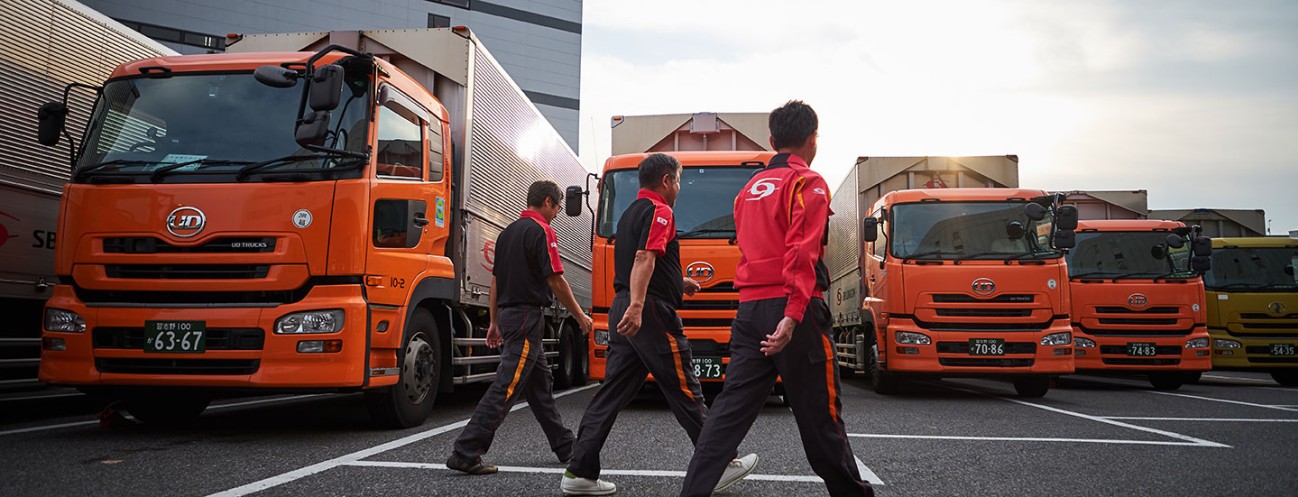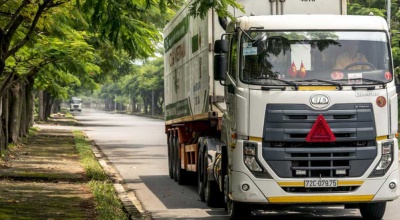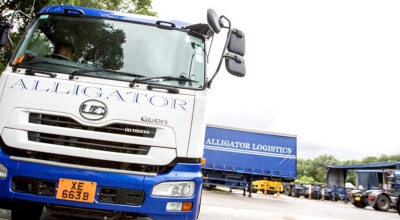The game changer
UD Customer Stories
|
January 16, 2019
A growth strategy based on mergers and acquisitions to increase its size and eliminate competition has turned SBS Holdings into one of Japan’s leading logistics companies just 30 years after its foundation. The company now has annual sales of 150 billion yen (USD13.25 billion) and employs more than 13,000 people.

“Nowadays, our company is often called the leading company but fundamentally, it is an entrepreneurial company. We move instantly with a sense of speed,” says Masahiko Kamata, who established SBS in 1987 and still steers its success today.
Kamata started working after leaving high school to bring and became a truck driver for a large transportation company. Once he understood the world of logistics, he went on to build his own business: SBS Holdings. Throughout its development, Katama gained a reputation as a president who worked his way up by taking a gemba-oriented approach – a way of working that UD Trucks shares dearly. Today, he still is very hands on and can sometimes be seen giving instructions to workers on how to load cargo.
Visionary transformation
Kamata has seen and survived dramatic change in the logistics industry by anticipating trends and having the vision to define them. A shortage of truck drivers and an aging workforce are increasingly common challenges, and Kamata sees the automation of operations through AI, automatic warehouses and drones as the solution. He recently announced a new dynamic state management system, inspired by the Uber model.
Given the relentless growth of online shopping, Kamata believes successful logistics businesses in the future will be based on automation and efficiency created by internet technologies. A system called iGOQ is his strategy to improve the efficiency of truck deliveries. This instantaneously provides information about a vehicle’s location and cargo load, and the information can be used to develop a logistics system for the whole industry by automatically matching cargos to available and suitable trucks, no matter who owns them. The system is already operational and Kamata aims to have 50,000 vehicles registered by 2020.
Kamata is determined to turn the threats of new constraints and changing consumption demands into opportunities, by overhauling the Japanese logistics sector through the use of smart logistics.
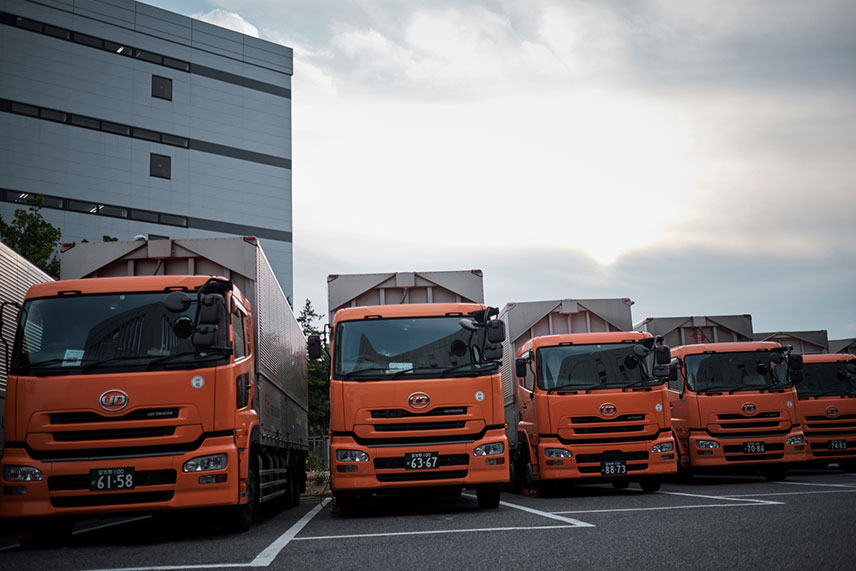
Trucks will always form the basis of the logistics business, of course, and SBS has many UD Trucks in its fleets across the country. Masaru Misawa, a driver and also an operation control at the Keiyo Branch of SBS Logicom, has been with the company since 1990 and has also witnessed many changes over the years. He has driven UD Trucks’ Big Thumb and Resona fifty-fifty, and loves the camaraderie that is part of the attraction of being a truck driver.
